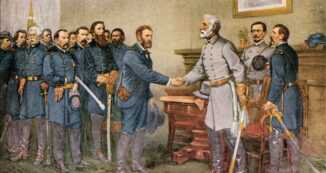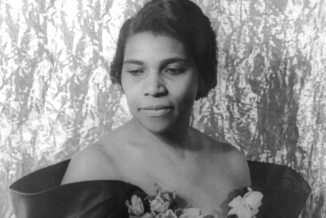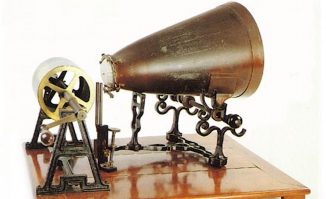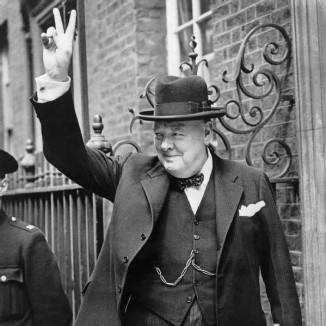
15 years ago, Parks and Recreation, a television mockumentary debuted on NBC, and leaped right into the hearts of millions of Americans. Without being their introductory roles, the show nevertheless catapulted its cast into nationwide comedy acclaim, particularly for Amy Poehler, Aziz Ansari, Nick Offerman, Chris Prat, and Aubrey Plaza, who all went on to hugely successful careers.
The show ran for 7 seasons, from 2009 to 2015, and wracked up 125 episodes. Produced and written by the creators of The Office U.S., “Parks and Rec” as it was commonly called, had a very similar style. WATCH some of the funniest moments… (2009)

The show centers around an underfunded parks department of a municipal government, headed up by an extremely ambitious mid-level bureaucrat. Her team is rarely cohesive, and the show features repeated battles to deal with a sinkhole that appears near her house. Hilarity ensues.
Throughout the show’s tenure on Thursday night, it won 14 Primetime Emmy Award nominations, a Golden Globe Award win for Poehler’s performance, and a nomination for the Golden Globe Award for Best Television Series – Musical or Comedy.
MORE Good News on this Date:
- The first public art exhibition was held at the Palais Royal in Paris, with works by members of the Royal Academy of Painting and Sculpture on displayed in the galleries of the Salon de 1667 for 15 days (1667)
- The first tax-supported public library opened in the US in Peterborough, NH (1833)
- The Grand National Assembly of Turkey removed Article II from their Constitution, declaring, even as a 99% Muslim state, that religion was to be separate from government and the teaching of Islam not part of any school curriculum (1928)
- The Houston Astrodome opened its doors for the first indoor baseball game ever played (1965)
- David Bowie went to #1 on the UK singles chart for the fourth time with the song, Let’s Dance– the first time he reached top of the charts on both sides of the Atlantic. (1983)
159 years ago today, the American Civil War ended when Robert E. Lee and his Army of Northern Virginia surrendered to General Ulysses Grant and the Union Army.
The moment was the first time the two men had seen each other face-to-face in almost two decades. Suddenly overcome with sadness, Grant found it hard to get to the point of the meeting.
The victorious general granted parole and freedom to the 28,000 Confederate soldiers, allowing them to return home with their horses—and officers with their swords and pistols—effectively ending the four-year war.

In addition to his generous terms, Grant also provided Lee with a supply of food rations for his starving army; Lee said it would have a very happy effect on the men and do much toward reconciling the country.
The surrender serendipitously occurred at the McLean House near Appomattox, Virginia, bought recently by Wilmer McLean, who fled his Bull Run farm to escape war after his property became the location of the first battle of the Civil War. As Lee left the house and rode away, Grant’s men began cheering in celebration, but Grant ordered an immediate stop. “The Confederates were now our countrymen, and we did not want to exult over their downfall,” he said. (1865)
And, 85 years ago today, Marian Anderson sang for 75,000 people–and millions of radio listeners–from the steps of the Lincoln Memorial in one of the most important musical and cultural events of the 20th century. Tickets to see this contralto singer were so in demand that a large venue was needed to showcase her immense talent. When Constitution Hall in Washington, DC, which was owned by the Daughters of the American Revolution, refused to let her perform because she was black, America’s First Lady Eleanor Roosevelt resigned from the group and organized a public concert, instead.

It was Easter Sunday when Secretary of the Interior Harold Ickes introduced Anderson to the vast crowd standing shoulder to shoulder on the National Mall, saying, “In this great auditorium under the sky, all of us are free. Genius, like justice, is blind. Genius draws no color lines.” After the opening performance of My Country ‘Tis of Thee (below), she sang an aria from La Favorite by Gaetano Donizetti, then Franz Schubert’s Ave Maria. She ended the concert with three spirituals, Gospel Train, Trampin’, and My Soul is Anchored in the Lord.
Eventually, Anderson did sing at Constitution Hall, after the DAR apologized and changed its rules… (1939)
Also, 164 years ago today, Édouard-Léon Scott de Martinville made a 10-second recording on his phonautograph machine of Au Clair de la Lune (“By the Light of the Moon”), a simple French folk song of the 18th century. It became the oldest known recording of an audible human voice. (1860)

And, 61 years ago today, Sir Winston Churchill, the English Prime Minister who led Allied forces to defeat the Nazis in World War II, became the first of only eight people ever to be proclaimed an Honorary citizen of the United States. Too ill to travel, he watched on television as President John F. Kennedy bestowed the honor in a ceremony attended by Churchill’s son and grandson.

The other seven non-US citizens to have received the honor, all posthumously except for one, in order of the proclamation date, are as follows:
Raoul Wallenberg – The Swedish architect, businessman, and diplomat is widely celebrated for saving tens of thousands of Jews in Nazi-occupied Hungary during the Holocaust in the later stages of World War II. While serving as Sweden’s special envoy in Budapest between July and December 1944, Wallenberg issued protective passports and sheltered Jews in buildings designated as Swedish territory.
William Penn – The English real estate entrepreneur, philosopher, and early Quaker was the founder of Pennsylvania who was an early advocate of democracy and religious freedom, and notable for his good relations and successful treaties with the Lenape Indians. Under his direction, the city of Philadelphia was planned and developed.
Hannah Callowhill Penn – The Second wife of William Penn, she administered the Province of Pennsylvania for six years after her husband suffered a series of strokes and then for another eight years after her husband’s death.
Mother Teresa – The beatified Catholic nun and Nobel Peace Prize winner of Albanian ethnicity and Indian citizenship founded the now global Missionaries of Charity in Calcutta, where she served the poor and sick.
Gilbert du Motier, Marquis de Lafayette – Known simply as Lafayette to Americans, the French aristocrat and military officer ensured victory for the United States in the Revolutionary War and was a hero later in the French Revolution of 1789. A close friend of George Washington, Alexander Hamilton, and Thomas Jefferson, his military prowess in the battle of Yorktown (and in many other battles) and leadership in securing French Naval forces were crucial to the American outcome.
Casimir Pulaski – The Polish military officer and nobleman fought alongside the American colonists in the American Revolutionary War and has been called “The Father of the American Cavalry.”
Bernardo de Gálvez y Madrid, Viscount of Galveston and Count of Gálvez – The Spaniard was an American Revolutionary War hero wounded during the Siege of Pensacola who provided supplies, intelligence, and military support, and demonstrated bravery that forever endeared him to US soldiers. (1963)
SHARE these Memories, Milestones, and Music…